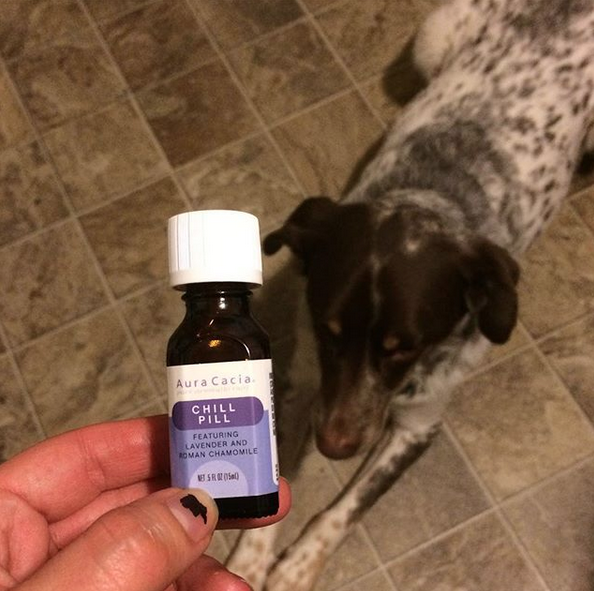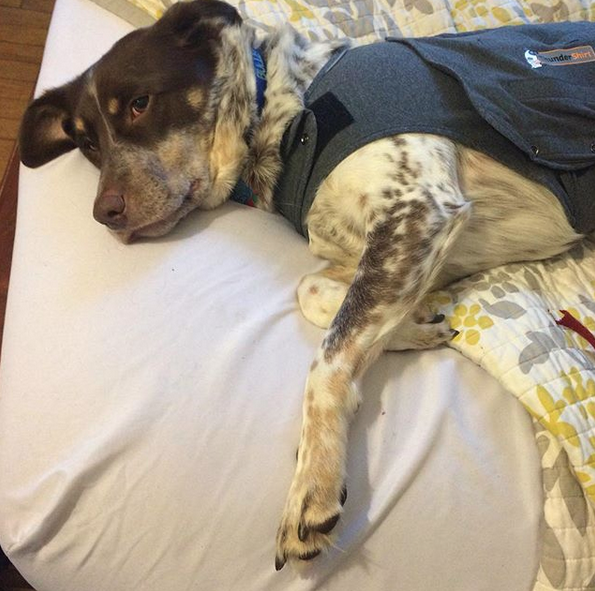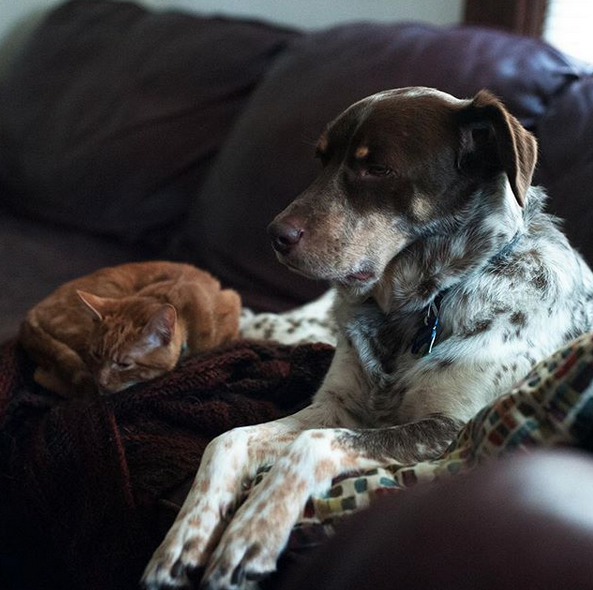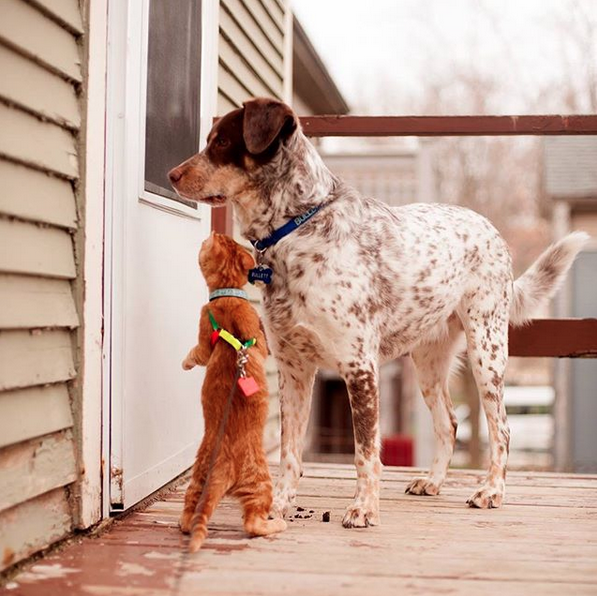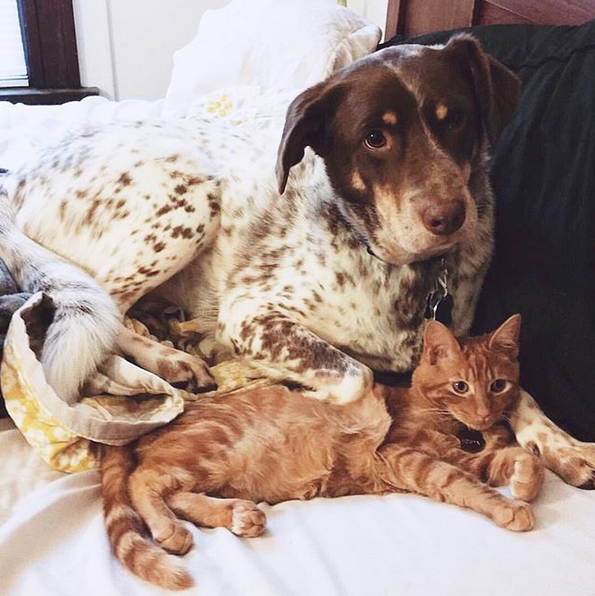Our Rescue Dog's Separation Anxiety
Bullett is wearing a cooling bandana from Geopetric. Get yours 20% off with the code BULLET&EOWYN.
Everyone says this about their own pet, but Bullett really is the best dog in the world. He is happy-go-lucky, energetic, fiercely loyal, friendly, and loving. You could have a sandwich on the end-table in his reach, go into another room, and he won’t eat it. He has a rare emotional intelligence where he can sense how much space and attention a fellow animal needs.
Bullett does have his flaws, just like everyone. He insists on peeing on everything outside and owns most shrubberies, rocks, and fire hydrants in our neighborhood at this point, at least in his eyes. He often gets so excited about seeing another dog that he loses focus while on a walk and pulls on his leash. These are things we’ve worked on, but one of our longest-fought battles was with his separation anxiety.
One of the risks you take when adopting a rescue dog can be discovering a medical or mental issue. Even if your dog comes from a foster home, backgrounds can be a bit in the dark regarding habits and genetics--especially a mutt. When we moved to our current apartment, neighbors would report him howling for hours on end in our absence. This mystified us, as we knew him to be a generally quiet dog. When we caught him in the act once or twice, we knew this was an issue we had to work with and thankfully our neighbors were mostly understanding, willing to be patient and work with us, and knew we were trying.
We tried freezing peanut-butter in a kong to keep him occupied, long-lasting treats like bully sticks that he could focus his energy on, thunder shirts to swaddle him like a baby and reduce his anxiety, and even pet-safe lavender essential oils to diffuse into our home and calm him down. While some of these things helped a little or at least temporarily, we knew none of these were THE solution. He loves and misses us so much when we are gone, how could we help the poor guy be more content and comfortable at home while we worked? We were at the point where we were considering crazy technology such as pet sound-bars or web cams that we could monitor him with from our smart phones.
We tried to think back to his past, and we came to the conclusion that he had never been alone like this before. Before he was adopted, he was in a shelter or foster home with other dogs. While a second dog is in our life plan, we knew for where we were currently at, another dog would not be the best option at the time. So, we decided to take a bit of a plunge and get Bullett a cat.
We adopted a shy, but sweet, 6-month-old fluffball from Underdog Pet Rescue that we named Monty. He really became a part of the family and unfortunately was taken from us far too soon. Due to the virus Monty passed from, we were advised to wait a few weeks to a month before adopting another cat. After about a week, Bullett began howling again. We couldn’t help but believe that Monty’s presence had actually alleviated some of Bullett’s separation anxiety. We asked our neighbors if he had been more quiet when the cat was around, and they said that they hadn’t heard a peep.
After waiting for what felt like an eternity, we finally brought a friendly, playful 8-week old kitten home and named her Eowyn. The two were fast friends and sure enough, Bullett’s howling ceased. We figured out the solution to managing his separation anxiety and got a wonderful family member from it (everyone wins!).
Many rescue dogs deal with separation anxiety, and while getting our dog a companion helped, every dog is different and what worked for Bullett might not work for them. If you have a rescue dog with this issue, do your research, try many different (pet-safe) things, and help your best friend get through this issue as a team.
Sincerely,
The Girl in the Unicorn Pajamas


